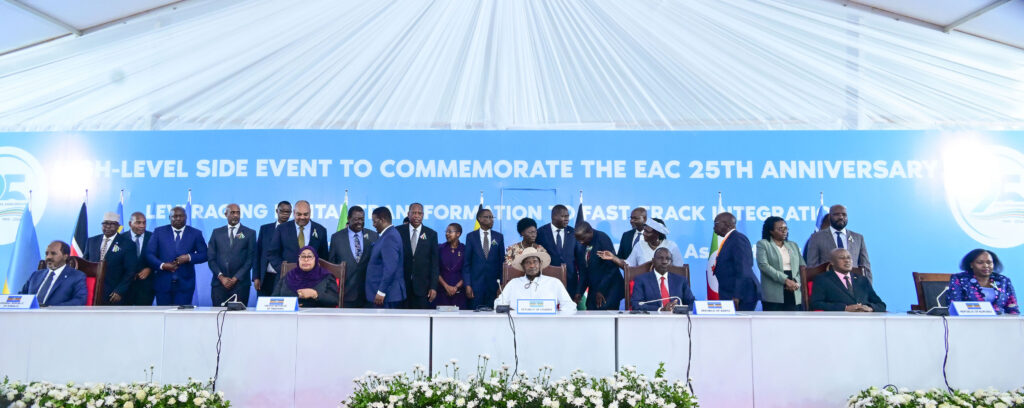President Yoweri Museveni is known for describing the past presidents of Uganda, especially Milton Obote and Idi Amin Dada, with superlatives that are not kind and abusive in nature. He belittles them at every opportune moment and is quick to blame them for all that has gone wrong not only in Uganda but East Africa as a region and Africa as a continent.
It was therefore unusual when the son of Kaguta praised Obote for bearing the vision of starting the East African Community. Obote, alongside Jomo Kenyatta (former president of Kenya), Mwalimu Julius Nyerere (former president of Tanzania, on June 3, 1963, laid the foundation for the East African Community.
“Their bold decision to establish the EAC was a significant step, even though the political federation they envisioned was not fully realized,” he said. He stressed that integration of the community is essential for both economic prosperity and strategic security.
The president Friday made the remarks in Arusha, Tanzania, where he joined fellow regional leaders to celebrate the 25th Anniversary of the East African Community.

The East African Community is marking a significant milestone as it celebrates 25 years of regional integration and cooperation during the ongoing 24th Ordinary Summit of Heads of State and Government in Arusha, Tanzania.
Held under the theme, “Promoting Trade, Sustainable Development, Peace and Security for Improved Livelihoods”, the high-profile event brought together leaders from across the region to reflect on the EAC’s achievements and strategize for the future.
The summit began on November 29th, and will conclude, November 30th, 2024, at Arusha International Conference Center.
Originally a three-member bloc, the community has grown to include eight member states; Burundi, Democratic Republic of Congo, Kenya, Rwanda, South Sudan, Tanzania, Uganda, and Somalia representing a combined population of over 300 million people.
During the high level side meeting, Museveni called for EAC to build on its 25-year journey of integration by embracing a broader historical perspective and advancing the cause of regional unity.
He praised Tanzania for leading by example when Tanganyika and Zanzibar united to form the United Republic of Tanzania, calling it a testament to the possibility of deeper regional integration.
“If that spirit had been embraced by all, we could have avoided many of the challenges that plagued our region, such as the Idi Amin era and conflicts in Rwanda and Burundi,” President Museveni observed.
At the Summit, the Heads of State discussed pressing issues shaping the region, focusing on strengthening economic resilience, enhancing peace and security and fostering initiatives to promote intra-regional trade and sustainable development.



